Archive for February 11th, 2010
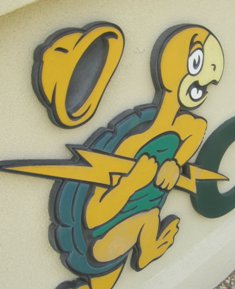
Warm year end boosts CUC profits for 2009
 (CNS): The president of Grand Cayman’s monopoly power provider has said he is very pleased with Caribbean Utilities Company results for the last quarter of 2009. The year end brought a 79%increase on the same period in 2008 as a result of drier warmer weather. According to a release form CUC the company’s net earnings grew by $2.6 million to $5.9 million from net earnings of $3.3 million for the three months to 31December in 2008 due to an 11% kWh sales growth quarter over quarter.
(CNS): The president of Grand Cayman’s monopoly power provider has said he is very pleased with Caribbean Utilities Company results for the last quarter of 2009. The year end brought a 79%increase on the same period in 2008 as a result of drier warmer weather. According to a release form CUC the company’s net earnings grew by $2.6 million to $5.9 million from net earnings of $3.3 million for the three months to 31December in 2008 due to an 11% kWh sales growth quarter over quarter.
“We are pleased with the Company’s performance this quarter which was helped by the relatively warm and dry weather for the period as compared to last year,’ President and CEO of CUC Richard Hew said.
Although temperatures fell in January in December customers appear to have helped boost CUC coffers by running their a/c units more than the year before. In 2008 Hew said CUC earnings were negatively impacted by cooler than average temperatures, higher than average rainfall and the passage of Hurricane Paloma. An increase in electricity consumption in the last quarter of 2009 however, also helped to make 2009 a profitable year for the power firm.
Although temperatures fell in January in December customers appear to have helped boost CUC coffers by running their a/c units more than the year before. In 2008 Hew said CUC earnings were negatively impacted by cooler than average temperatures, higher than average rainfall and the passage of Hurricane Paloma. An increase in electricity consumption in the last quarter of 2009 however, also helped to make 2009 a profitable year for the power firm.
“Although growth in sales on the island has slowed compared to recent years, the Company has managed to minimize the effect on earnings through reduced capital and other expenditures and will continue to seek opportunities to operate the business within the available financial resources.”
Net earnings for the twelve months ended December 31, 2009 were $20.0 million, the firm stated, representing a 1% or $0.2 million increase from net earnings of $19.8 million for the twelve months ended December 31, 2008.
CUC said its profit was down to a combination of a 2% kWh sales growth and lower general and administration, consumer service and promotion, transmission and distribution, maintenance and finance costs in 2009.
The firm also said the introduction of a fuel tracker mechanism in the Company’s 2008 Transmission & Distribution Licence has eliminated favourable or adverse timing differences in fuel cost recovery.
Operating revenues decreased 18%, or $9.6 million, to $43.9 million for the three months ended December 31, 2009 from $53.5 million for the three months ended December 31, 2008. Operating revenues decreased 24%, or $49.2 million, to $158.8 million for the twelve months ended December 31, 2009 from $208.0 million for the twelve months ended December 31, 2008. Operating revenues are lower mainly due to lower fuel factor revenues in 2009 driven by lower fuel costs.
Hew also said that reliability was 99.96% which exceeded the 2008 results. “CUC will strive to maintain this performance through the completion of capital projects such as the Rum Point to Frank Sound transmission line and other operational improvements.”
The firm also confirmed that the Board of Directors has declared a dividend of US$0.165 per Class A Ordinary Share, or an annualized dividend of US$0.66 per share. The dividend will be payable March 15, 2010 to shareholders of record February 22, 2010.
The full report can be accessed at www.cuc-cayman

Dubai court annuls marriage to ‘bearded lady’
 (BBC): An Arab country’s ambassador to Dubai has had his marriage contract annulled after discovering the bride was cross-eyed and had facial hair. The woman had worn an Islamic veil, known as the niqab, on the few occasions the couple had met. The envoy, who has not been identified, told a Sharia court her mother had tricked him by showing him pictures of the bride’s sister, Gulf News reported. He only discovered the deception when he lifted the woman’s veil to kiss her. The court had annulled the marriage contract but rejected a $130,000 (£83,000) compensation claim for gifts he had bought his intended, the report said.
(BBC): An Arab country’s ambassador to Dubai has had his marriage contract annulled after discovering the bride was cross-eyed and had facial hair. The woman had worn an Islamic veil, known as the niqab, on the few occasions the couple had met. The envoy, who has not been identified, told a Sharia court her mother had tricked him by showing him pictures of the bride’s sister, Gulf News reported. He only discovered the deception when he lifted the woman’s veil to kiss her. The court had annulled the marriage contract but rejected a $130,000 (£83,000) compensation claim for gifts he had bought his intended, the report said.

Comment moderation
From what I can tell, the argument in favour of publishing comments that may seem racist or prejudiced is that unearthing such perspectives is preferable to having them uttered behind closed doors and that in being allowed to voice their feelings, those making such comments will be exposed to alternative viewpoints and, correct me if I’m wrong, the implication is that this can only be good for society in a broad sense.
This sounds logical and perhaps it is true, but I would have to ask whether the research on group polarisation and social identity theory has been considered when drawing this conclusion. It has been a long time since I have studied social psychology, but I think these concepts may be relevant.
In relation to group polarisation, there is evidence to suggest that people may adopt more extreme positions and advocate more extreme courses of action after engaging in a group discussion, rather than prior to it, if only to differentiate their views and opinions from opposing or more moderate perspectives, and to identify with those whose arguments they find persuasive even where they are more extreme (and what we find persuasive tends to have a lot to do with our opinion going into the discussion). There is evidence from research into social identity theory to suggest that we discriminate against members of other groups more when we feel that they are threatening the groups with which we identify in some way. If these statements hold true, on-line forums which allow divisive comments have the potential to make those who are quite prejudiced even more prejudiced, and to foster prejudice amongst those who feel threatened by their prejudices (prejudices of which they would be unaware, had it not been given a public voice). Their resulting prejudice only feeds back into the whole ugly mess, bolstering people’s initial, uniformed views.
But perhaps my reading of this is wrong, as I said, it is a long time since I studied social psychology and I have not read any recent research, all of this could well have been turned on its head or found only to apply in very specific circumstances. From a personal perspective, while I enjoy reading CNS, and obviously supplying the occasional response myself, like the earlier commenter I too could really do without the divisive rhetoric. There are many good things about CNS, it’s incredibly current and well written. But I read the comments for the measured and sober perspectives supplied by a number of contributors, and I am getting tired of sifting through an increasing amount of commentary which upsets me personally, and commentary that I know will upset others, not to mention the people who claim, or appear, to speak on my behalf and don’t. I notice that you’ve effectively said to the earlier commenter ‘if you don’t like it you can stop reading’….well one day the cons might outweigh the pros and I will…certainly I have done this in the past in relation to other publications.
Obviously there is a place for all manner of conflicting perspectives and healthy debate is important in building a strong community where everyone feels they may actively participate, but I have to question whether the divisive rhetoric really helps any one, or just makes us all feel a little bit hated, a little bit threatened and a little bit angry. Societal relations here don’t seem to be getting any better for it (but please tell me if you have evidence that they are, in all sincerity, I would be very interested).
If the poll you mentioned accurately reflects the views of people here in Cayman, it appears that most believe the community is very divided. I can’t help thinking that having a facility to publish and read all manner of hateful comments about each other is not going to change that for the better. Yes, I am aware of the argument in favour of free speech…but drawing a firmer line in relation to the comments does not prevent free speech…it just makes a statement about the kind of speech which you and the majority of your readers prefer….perhaps you can run a poll in relation to that before you invite a segment of your readership to stop reading (I am fairly convinced that the outcome of such a poll would be to find that a majority support maintenance of the status quo, but wouldn’t it be nicer to know for sure)?
I guess the point I want to make is that, if it is your argument that publishing comments that may cause distress to particular members of the public and segments of the community is justified because it is of benefit to that society, you’re going to have to explain to me exactly how that works…because I just don’t see it.
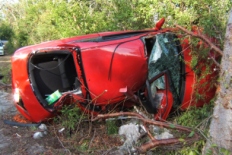
Early morning crash on the Brac
 (CNS): A single vehicle car crash on Cayman Brac early this morning left one man hospitalised. Unofficial sources say the 29-year-old driver of a red Honda Integra Type-R, who was the only person in the car at the time, collided with a tree on Rock Road between 1:00 and 1:30am today, Thursday 11 February, and sustained multiple injuries. He was taken to Faith Hospital, where apparently he is in stable condition.
(CNS): A single vehicle car crash on Cayman Brac early this morning left one man hospitalised. Unofficial sources say the 29-year-old driver of a red Honda Integra Type-R, who was the only person in the car at the time, collided with a tree on Rock Road between 1:00 and 1:30am today, Thursday 11 February, and sustained multiple injuries. He was taken to Faith Hospital, where apparently he is in stable condition.
Anyone with information about the incident should contact PC Melbourne at Cayman Brac Police at 948-0331 or 926-0635.
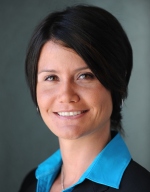
Caymanian lawyer steps up corporate ladder
 (CNS): Local law firm Walkers has named Caymanian attorney Lesley Connolly as the new Senior Vice President for Walkers Corporate Services Limited, a leading provider of offshore corporate services in the Cayman Islands. Walker says that in her new role, Connolly will have ultimate responsibility for managing the operational activities of the company and establishing a strong and highly effective team with the aim of enhancing the company’s competitive position and achieving its strategic objectives. A release from Walkers says that Connolly has been part of the Walkers Group for the past seven years, and that the firm sponsored her legal education.
(CNS): Local law firm Walkers has named Caymanian attorney Lesley Connolly as the new Senior Vice President for Walkers Corporate Services Limited, a leading provider of offshore corporate services in the Cayman Islands. Walker says that in her new role, Connolly will have ultimate responsibility for managing the operational activities of the company and establishing a strong and highly effective team with the aim of enhancing the company’s competitive position and achieving its strategic objectives. A release from Walkers says that Connolly has been part of the Walkers Group for the past seven years, and that the firm sponsored her legal education.
Prior to stepping up as SVP, she worked as an Associate in the law firm’s Litigation Department, specialising in Trust Disputes, with previous postings as Assistant Operations Manager and Training Officer. Before joining Walkers Lesley obtained a Master of Science Degree in Hotel & Foodservice Management and worked as a Human Resource Manager for a large hotel.
Connolly was sponsored by Walkers throughout her legal education, obtaining her LLB with first class honours at the Cayman Islands Law School, where she was awarded the Sweet Maxwell Law Prize and her Legal Practice Course at the College of Law in London, which she passed with Commendation. After undertaking her Articles withWalkers, Connolly was admitted as an Attorney-at-Law in the Cayman Islands in April 2009.
"The combination of Lesley’s legal skills as well as her strong operational and HR Management expertise will make her an invaluable member of our team as we continue to roll out our suite of new and innovative services," commented Nancy Lewis, Chief Executive Officer of Walkers Global Holdings Limited. "We are delighted that Lesley has decided to make the switch from the legal side to join us and we are particularly proud to say that the staff of Walkers Corporate Services is 100% Caymanian."
"I am extremely excited to be starting with Walkers Corporate Services and overseeing the next stage in its development and the further expansion of its operations," Connolly said. "Due to its enhanced range of services, high quality team of professionals and value proposition, Walkers Corporate Services is recognised for providing its clients with a compelling offering."
Walkers Corporate Services has recently introduced a number of innovative, leading edge products and services which have cemented its reputation as the premier provider of offshore corporate services in the Cayman Islands.
In December 2009, the new ‘Second Generation Web Portal’ was launched by Walkers Corporate Services to provide clients with 24/7, secure global online access to all key corporate documents and information. This innovative client service tool includes intuitive search features to instantly retrieve statutory documents, agreements, board minutes and resolutions. Other features include pre-defined, frequently requested reports, billing information analysis and contact information.
Also recently added to the group’s product suite is Walkers Corporate Services’ new ‘Board Support’ feature. ‘The Boardroom’ allows board meeting attendees to directly download ‘Board Packs’ anywhere in the world at any time, rather than relying on email for the delivery of large files. Minutes can be uploaded directly after the conclusion of the meeting, while enhanced permissions and real-time updating ensures that the right individuals receive the correct documents at the right time.
"We have had a really fantastic response from our clients to the new products and the enhancements we have made to our service which clearly distinguishes Walkers Corporate Services from the competition," Lewis said. "We are all very excited about the coming year for the business and I am extremely confident that under Lesley’s leadership we will achieve even greater heights."

Low pay persists with no sign of minimum wage
 (CNS): With no minimum wage in place, the problem of low pay persists, raising concern in the community that people will be driven to commit crime to survive. Speaking at the media briefing on Tuesday afternoon, the premier warned employers that theywould not get work permits if they do not pay ex-pat workers a salary that they can live on. He said no one should be expected to work for as little as $4 or $5 per hour and that, while government was not going to introduce limits, the law demanded that people have enough to support themselves. However, with no minimum wage planned, there is still nothing to force employers to pay local staff a liveable salary.
(CNS): With no minimum wage in place, the problem of low pay persists, raising concern in the community that people will be driven to commit crime to survive. Speaking at the media briefing on Tuesday afternoon, the premier warned employers that theywould not get work permits if they do not pay ex-pat workers a salary that they can live on. He said no one should be expected to work for as little as $4 or $5 per hour and that, while government was not going to introduce limits, the law demanded that people have enough to support themselves. However, with no minimum wage planned, there is still nothing to force employers to pay local staff a liveable salary.
McKeeva Bush said that, while employers are pushing for clear positions from government, they must equally be straightforward in their dealings and give work to local people. He said some employers claimed they would not employ Caymanians because they won’t work for 4 or 5 dollars an hour.
“No one in the Cayman Islands should have to work for 4 or 5 dollars an hour. It is simply impossible, given our cost of living, for anyone to survive on such a wage,” Bush declared.
“We will be instructing our boards to be mindful of the fact that, prior to issuing a work permit, they must be convinced that the person can afford to support himself and any dependants whilst working here. If not, either the employer must pay more or the work permit must be refused.”
The issue of a minimum wage has been in contention for several years, and while the previous government had vowed to introduce one as they supported the principle, they failed to deliver. The current government says it has no plans to enforce a minimum wage, leaving not just ex-pats vulnerable to exploitation but local workers as well.
News 27 spoke to a number of people who are at the bottom of the pay scale and who, even after a full week’s work, are not taking home enough to live on. Security guards are particularly vulnerable, but low pay is not limited to that industry with many locals as well as foreign workers struggling to make ends meet.
Ricketts slips on timeline
(CNS): Despite the confession statement thathe gave to the police on 27 October 2008, the day after his arrest for the murder of Estella Scott-Roberts, Larry Prinston Ricketts (left) took the witness stand on Wednesday morning and denied everything. However, during the cross examination by Solicitor General Cheryll Richards QC on behalf of the crown, Ricketts said he had first learned of the murder at his workplace when people were talking about the burned out car on the morning of Saturday 11 October. The deceased’s vehicle was not found until around lunchtime of that same day.
Ricketts had taken the stand during the voir dire last week when his defence counsel sought to have the confession ruled inadmissible as Ricketts had claimed the confession was made up by the police and he was coerced into signing it. At that time he was questioned only by his own attorney, Robert Fortune QC and the solicitor general, mostly on why, when he claimed he had not made the statement, he would sign it.
However, when the accused man took the stand on Wednesday morning following his evidence in chief, he was crossed examined by Bourne for the first time and was also questioned in far more detail by the solicitor general on his activities on the Friday evening and the Saturday morning – before, during and after the murder.
Taking the stand around 10:30, Ricketts told the court that on Friday 10 October 2008 he had gone to Royal Palms alone at around 8 o’clock, had a few drinks and then had returned to his home on Walkers Road around 10:30pm, where he went to bed and woke up in the morning at around 5:30am and got ready to go to work. He said that on his way to work, as he reached central George Town, he ran into Kirkland Henry, who asked him to help him get money from an ATM with a bank card he had found. Ricketts said he tried to assist his friend at two machines but was unable to help, so he left and went to work.
Ricketts claimed to know nothing about the crime and denied being with Henry or abducting, raping or murdering Estella Scott-Roberts. He said he had what turned out to be her BlackBerry phone because he bought it from Henry for $200 and he had no idea where Henry had got it from.
When Bourne began probing the plausibility of Ricketts’ claims and the number of coincidences surrounding his version of events, Ricketts continued to deny that he had anything to do with the crime. Facing questions about phone calls that night between himself and Henry and the details of the confession, which Bourne noted only a person who was at the scene of the crime could have known, Ricketts continued to say he was not with Henry and he was not involved.
Acknowledging that Ricketts’ evidence was that the “dishonest police officers” had made up his confession, Bourne asked how they could have made up the things that only those present at the crime would know, things that Henry had, at that point, not yet told the police. He asked how the officers were able to make up the part about Ricketts finding a plastic garbage bag in the car which was used to suffocate the deceased when they did not know then that was how she was killed.
Ricketts said the officers were making assumptions about what they thought had happened to the lady. “I never knew anything about it,” Ricketts told the court. When Bourne probed further about the details of Ricketts’ confession regarding how Henry had pulled the deceased from the driver’s seat in to the back of the car because Ricketts had lowered the seat all the way back at the time of her abduction, Ricketts still denied being there. “They were professional officers, doing their work,” Rickets claimed. “They made this up.”
Bourne also asked how the police had written down that Ricketts knew that Scott-Roberts had claimed to have two children in order to try and save her life — although she did not have children — when those officers had no idea that Henry had also revealed this in his confession.
“I don’t know,” Rickets said. “It’s because you were there, isn’t it?” Bourne asked. “No sir,” the defendant replied.
Following the grilling by Bourne, Ricketts continued to claim his statement was concocted by the police when the Solicitor General began her cross examination. She established that Ricketts had travelled on the bus along the West Bay Road as many as twelve times per week during the six months before the murder, but still insisted he did not know where Deckers’ Restaurant or Buckingham Square were and had never seen the signs.
She too probed Ricketts about a 2:00am phone call that he had received from Henry. Ricketts claimed he couldn’t remember what it was about and didn’t ask Henry why he had called him in the middle of the night when they met by coincidence the following morning around 6:00am. She questioned Ricketts about the card, the phones and the laptop that Henry had, and when he had discovered they were connected to the murder, but Ricketts indicated he was not sure when he realized or what he thought about it.
However, when Richards pushed Ricketts on when it was that he learned that a lady had been murdered, he said that when he went to work on Saturday morning (11 October) after he left Henry, the people at the work site at Dive Tech on North West point were talking about a burned out car with a body found at Barkers. However, Scott-Roberts’ car was not discovered until around lunchtime on that same Saturday.
The solicitor general asked him if he had expected to get money from Henry if they had successfully taken cash from the ATM, which he said he did. “So you are the kind of person who engages in wrong doing if it will benefit you?” Richards asked. After a pause Rickets said, “Yes ma’am”.
Ricketts will return to the stand for further cross examination on Thursday morning.
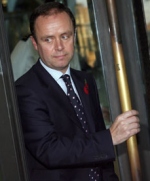
MPs reprimand police over newspaper phone hacking
 (The Guardian): Metropolitan police assistant commissioner John Yates has been reprimanded by the culture select committee for what it claims was a failure to give more detailed evidence to MPs over the scale of hacking into private phone messages by former News International employees. The chairman of the culture committee, John Whittingdale, has written to Yates to deliver the reprimand. Yates has angrily replied it had never been his intention to mislead the committee and he is most concerned that the committee believed that to be the case. At the time of giving oral evidence to the committee in September, Yates gave no indication he knew of the scale of the hacking.
(The Guardian): Metropolitan police assistant commissioner John Yates has been reprimanded by the culture select committee for what it claims was a failure to give more detailed evidence to MPs over the scale of hacking into private phone messages by former News International employees. The chairman of the culture committee, John Whittingdale, has written to Yates to deliver the reprimand. Yates has angrily replied it had never been his intention to mislead the committee and he is most concerned that the committee believed that to be the case. At the time of giving oral evidence to the committee in September, Yates gave no indication he knew of the scale of the hacking.
CNS note: Yates was Scotland Yard’s reviewing officer for, and advisor to, the special investigation team (SPIT) which investigated allegations of corruption within the Royal Cayman Islands Police Service, and made several trips to the Cayman Islands in this capacity.
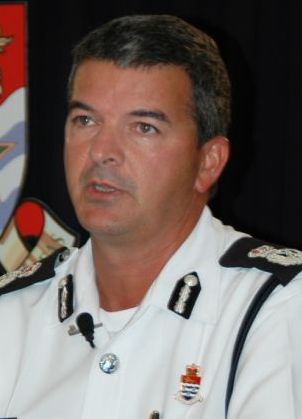
Mac calls on cops for new way
 (CNS): The orthodox way of fighting crime in the Cayman Islands is not working, the premier has said, and called on the police commissioner to implement new aggressive strategies to get to grips with the islands’ crime problem. McKeeva Bush said that the criminals are not seeing the police as a threat, which was “totally unacceptable”, and there was a need for new crime fighting methods. The country’s elected leader said he believed in the death penalty but the UK took it away because of human rights and there was nothing he can do to bring it back, so something else was needed to stop the violent crime.
(CNS): The orthodox way of fighting crime in the Cayman Islands is not working, the premier has said, and called on the police commissioner to implement new aggressive strategies to get to grips with the islands’ crime problem. McKeeva Bush said that the criminals are not seeing the police as a threat, which was “totally unacceptable”, and there was a need for new crime fighting methods. The country’s elected leader said he believed in the death penalty but the UK took it away because of human rights and there was nothing he can do to bring it back, so something else was needed to stop the violent crime.
“Crime is one of the laziest ways known to man of trying to solve life’s problem,” Bush told the press at a post-Cabinet media briefing on Tuesday afternoon. “When I was campaigning, we did not say we had the answers to the crime wave we were experiencing. We said we would try to do something about it. That is our commitment.”
He said that while the previous PPM administration had said that they were spending $50 million on police to fight crime and while they talked about infrared binoculars, a helicopter, more police officers and more vehicles, crime was still no better controlled $50 million later.
Bush said his government was once again pushing to get a Special Task Force to deal with the rise in crime – a request the premier has made since coming to office in May last year.
“We believe that the orthodox way of fighting crime in Cayman is not working. We feel that the criminals are not seeing the police as a threat and this is totally unacceptable. There must be new crime fighting methods implemented to deal with the new wave of offenses,” he added. “I have spoken to the commissioner about setting up a special task force to deal with crime. This task force would work aggressively to deal with the rising crime. From our viewpoint they would work with the commissioner to develop strategies to clean up our policing systems, implement more aggressive methods and more updated technologies and strategies. We feel that the old way of dealing with crime or criminal elements must change.”
Bush also pointed to recent moves in Bermuda requesting the help of the New York Police Department to deal with an increase gang-related violence in that jurisdiction. He said government was committed to ensuring that the right resources were assigned to fight crime.
“We cannot simply expect the problem to go away on its own,” he said, warning about its impact on the local economy. “If we don’t implement strategies to deal aggressively with crime the impact on the overall economy will be significant. This is not a district specific issue, it is a national one, and as such we must collectively deal with it. This government has a generous vision for national development, but for it to work and remain sustainable we must have a safe environment for our citizens and our visitors.”
Calling on the community to support the police, he also said that personal security and national development were intrinsically linked. “We must develop strong strategies to deal with crime,” the premier said, stating his government was continuing to have serious and high level discussion with the commissioner and the governor, who has jurisdiction over issues relating to security.
“We also expect that the recently appointed National Security Council will vigorously pursue such discussions at its first meeting, to be called soon, in order to properly advise the government in terms of policy on crime and public safety,” Bush noted.
The elected government would support the necessary new technology, he said, such as CCTV, machinery for x-raying containers at the port and radar for interdiction purposes. Bush also said his government would adapt policy measures such as changing legislation. “There is already gang legislation in the penal code, in force from 2005. If that needs to be strengthened, we will do so,” the premier stated. But he said he wanted to see a special task force and more effective coastal patrols. However, the elected arm of the government has no control over crime other than allocating the financial resources requested by the RCIPS.